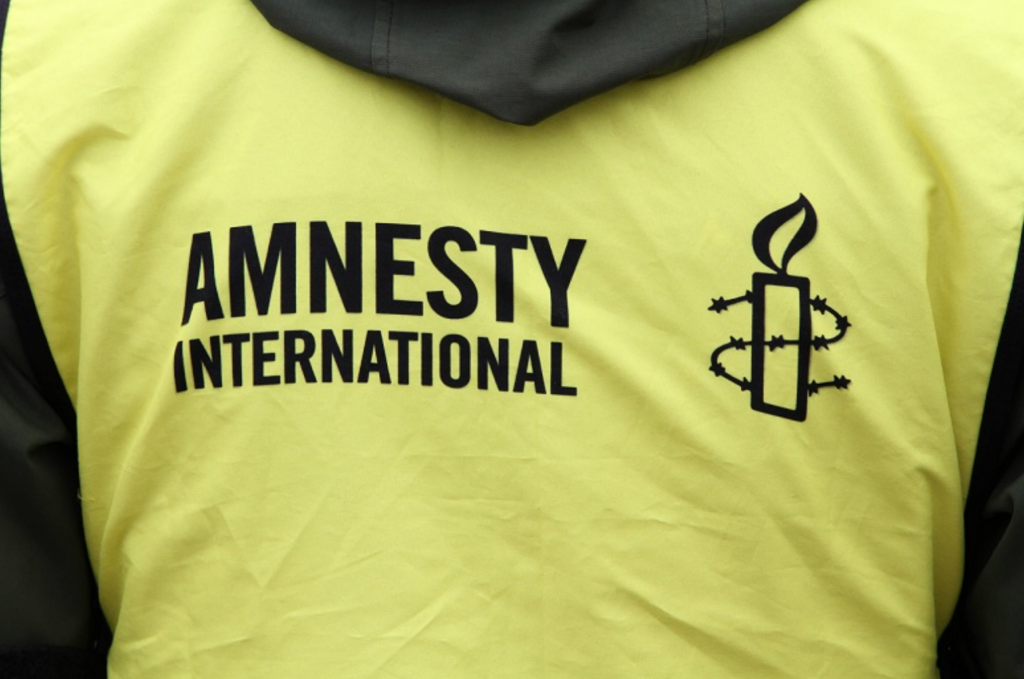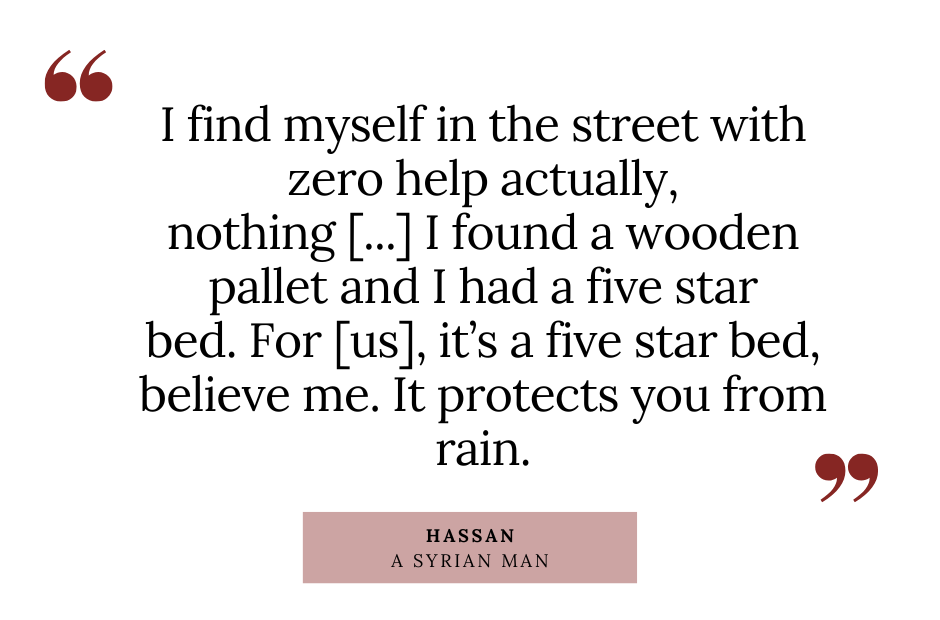Belgium's persistent violation of human rights and subsequent rule of law crisis have been investigated by a new Amnesty International report.
The report, titled 'Unhoused and Unheard: How Belgium's persistent failure to provide reception violates asylum seeker's rights', was presented by Amnesty International researchers and civil society representatives at a press conference in Brussels on Wednesday.
Drawing on testimonies from asylum seekers, interviews with lawyers and over 12,000 court rulings condemning the State's unlawful behaviour, the report illustrates that Belgium's "reception crisis" is a result of deliberate governmental inaction. These policies are causing extreme suffering among people who need international protection.
"This is the first time we have published a report that says there is a systematic violation of human rights in Belgium, especially the right to reception, but also to healthcare and the right to a decent job," Amnesty Belgium Director Carine Thibaut told The Brussels Times. "There is also a rule of law crisis, because the government has not respected 12,000 court rulings against it [...] It's affecting migrants now but that could change in the future.
"Imagine if people were denied their pensions and it was condemned by over 12,000 court decisions, but the government refused to respect the rulings. We should be afraid of what's happening in migration and what it means for the rule of law."
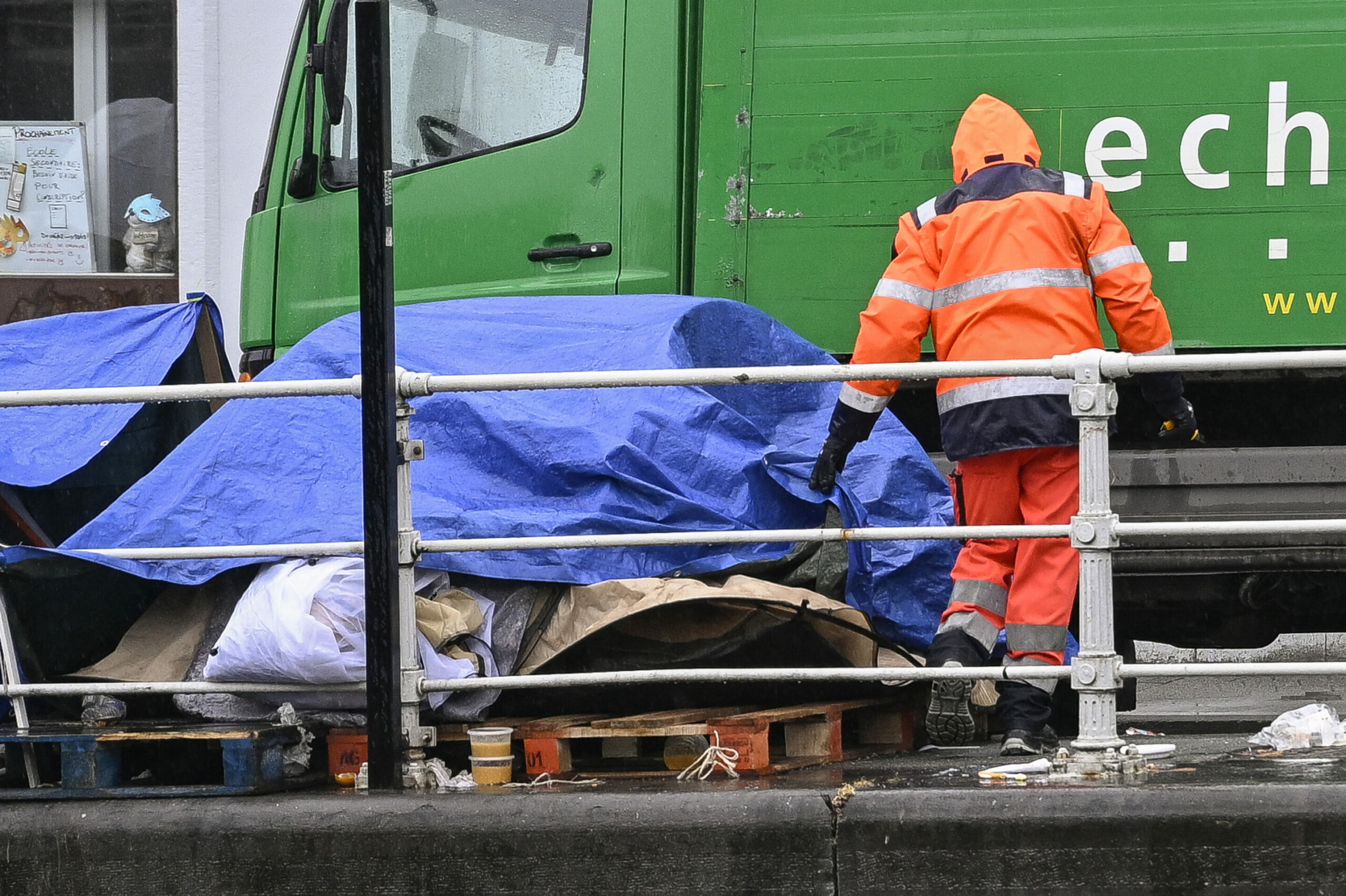
Evacuation of tents in front of the Petit Chateau arrival centre in Brussels on 7 March 2023. Credit: Belga / Nicolas Maeterlinck
'Systemic failure' and 'clear refusal' to act
Legally speaking, Belgium is in clear breach of national and international standards. Under the Belgian Reception Act, every asylum seeker has a right to housing and provisions such as food, medical assistance and legal support. Under EU law, a Member State's responsibility begins when someone expresses a need for international protection.
Since October 2021, a growing number of displaced people in Belgium have been denied the right to asylum, with around 2,500 currently on the waiting list.
The Belgian State and asylum reception agency Fedasil have been condemned by thousands of Belgian courts. The European Court of Human Rights has condemned Belgium's "systemic failure" to provide adequate reception. In June 2023, a labour court imposed a daily penalty fee on the State for non-compliance with rulings but "no fees have been paid and legal proceedings are ongoing". The Council of Europe has repeatedly condemned Belgium's "clear refusal" to comply with unfavourable court decisions.
Disrespect for human rights is felt the most by asylum seekers. The report has recorded testimonies of dozens of people who live on the street, in squats or in other precarious conditions as they are denied assistance, most of whom are single men (asylum for single males was suspended in August 2023).
Hassan fled Syria in 2012 and spent three months sleeping on wooden pallets near Pacheco, the former asylum registration site.
"I find myself in the street with zero help actually, nothing," he said. "I found a wooden pallet and I had a five star bed. For [us], it’s a five star bed, believe me. It protects you from rain."
Without a fixed address, asylum seekers are not allowed to work and are therefore stuck in a "closed circle". Hassan's testimony also indicates significant barriers to healthcare. "If you have a heart attack or cancer, they don't care about you."
The Humanitarian Hub is a consortium of non-profit organisations that offers medical assistance to asylum seekers and/or homeless people. Due to a lack of resources it is not possible to help everyone. In 2024, the Hub had to refuse 1,269 requests for medical help.
'This is about fighting for the rule of law'
The report warns that the implications of the rule of law crisis stretch far beyond this portion of the population.
"Foreign nationals' rights are the touchstone for the rest of politics," says lawyer Jean Marc Picard. "They [the government] try something in the domain of immigration law to see if it sticks. Then, they apply it in other laws as they think that people are less likely to resist when it comes to the rights of migrants."
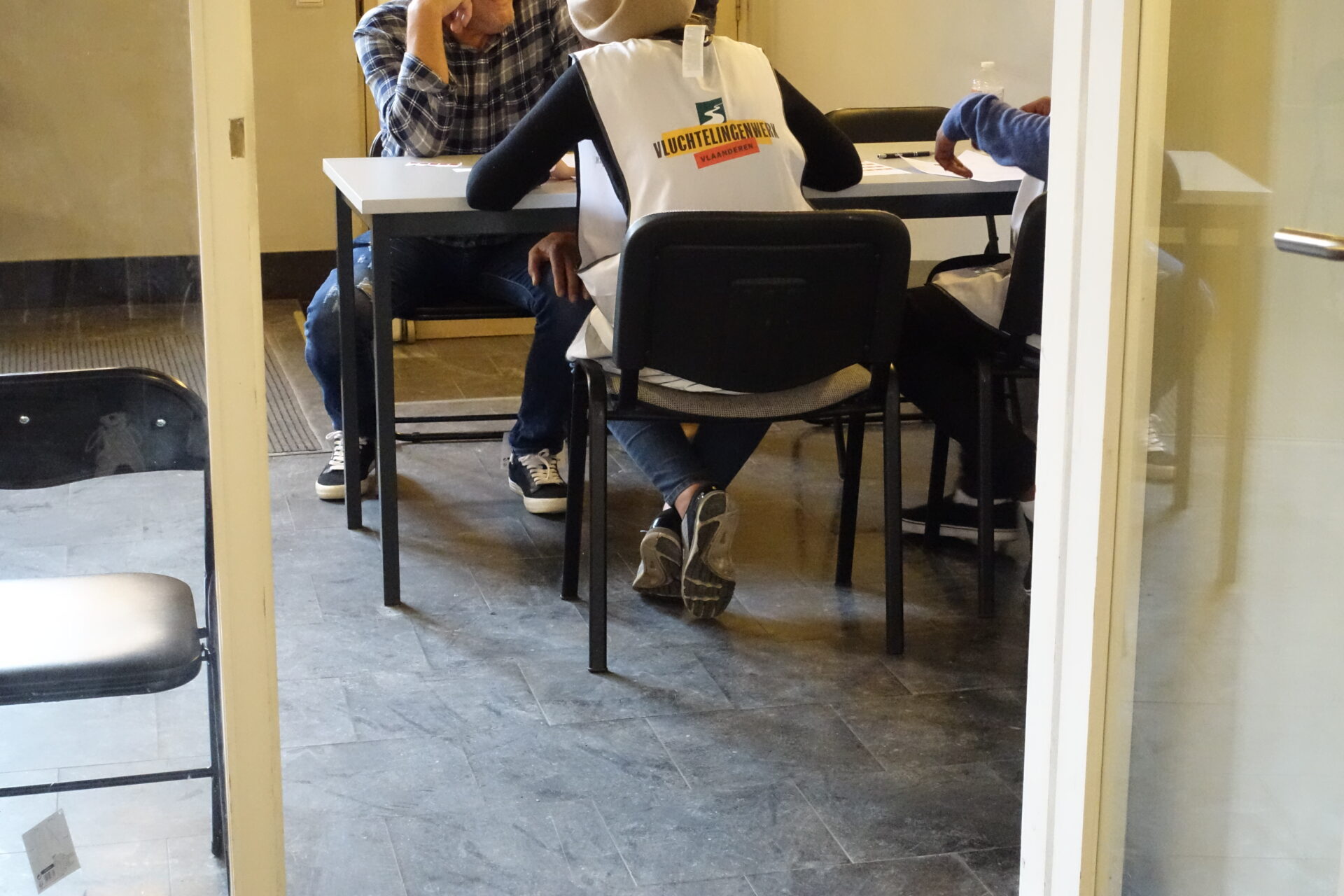
An asylum seeker registering at the Helpdesk. Credit: Lauren Walker / The Brussels Times
Jean-François Gerard is a lawyer and coordinator of the Legal Helpdesk for refugees, where a team of volunteers provides free legal aid to asylum seekers. Gerard says "the lack of success [in changing migration policy, ed.] is not a reason to stop".
"If we were to stop this fight, then other people will probably stop other fights and the situation will get worse," he said. "And this is also probably why we still get so many volunteers from business law firms. They all understood that this is going beyond migration. This is about fighting for the rule of law and making sure that this country is still a place where the law has meaning."
'We refuse to believe that Belgium cannot solve this'
Amnesty International and non-profit organisations operating in Belgium are adamant that the term "reception crisis" is misleading, as the "crisis" is caused by deliberate governmental inaction.
"In the past, Belgium has proven it is able to provide reception promptly and to large numbers of people," the report states. Following Russia's fullscale invasion of Ukraine in 2022, more than 91,806 Ukrainians were granted temporary protection and 18,334 of them received support from Fedasil.
The Federal Government has also refused to activate a dispersal plan even though it is a legal route towards distributing asylum seekers across Belgian municipalities, reducing pressure on Brussels facilities and encouraging better integration.
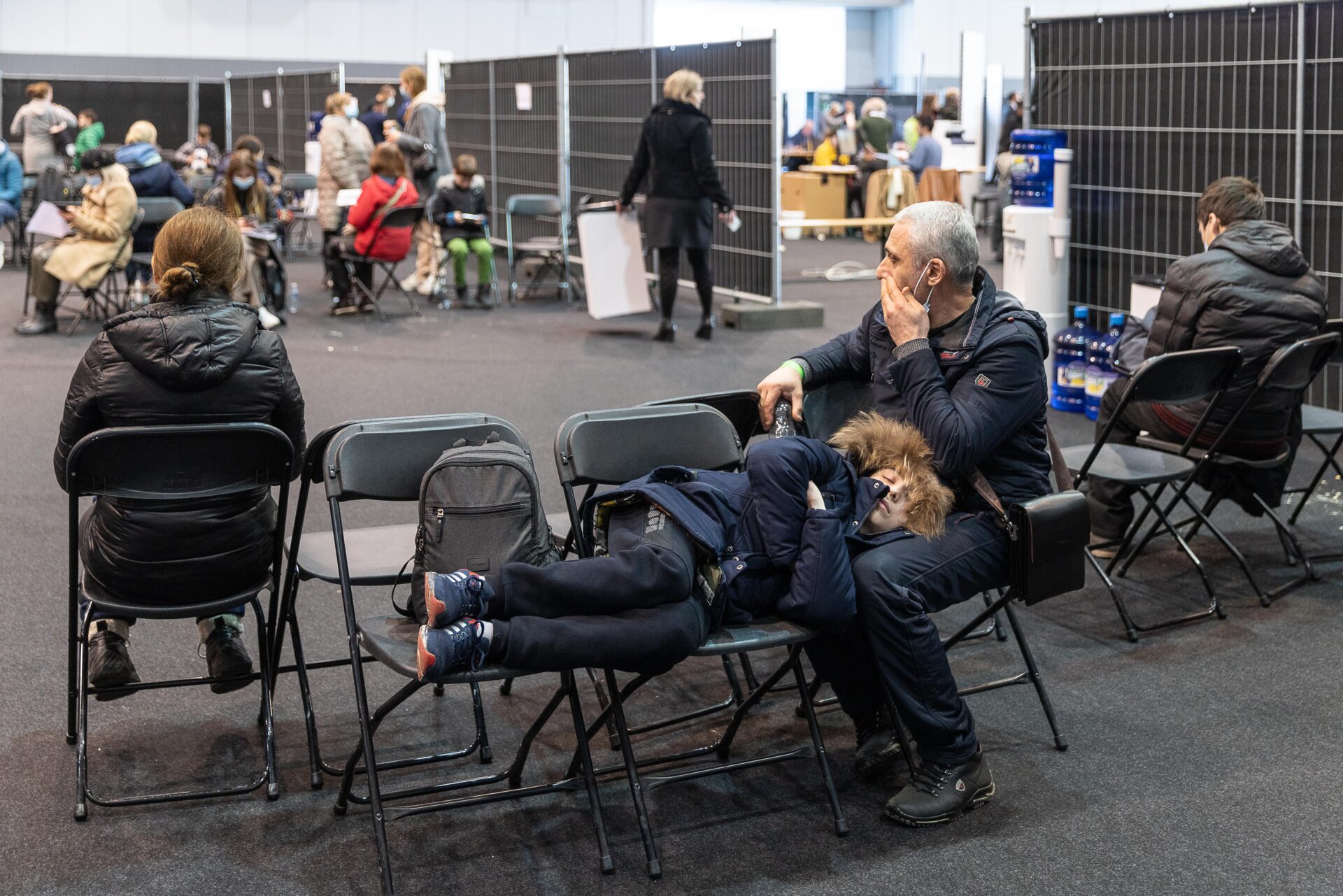
A registration centre for Ukrainian refugees in Brussels in March 2022. Credit: James Arthur Gekiere / Belga
Thomas Willekens is a policy officer at the non-profit organisation Refugee Work Flanders (Vluchtelingwerk Vlaanderen). He points out that fluctuations in asylum numbers are predictable and can be managed accordingly.
"This non-reception policy is a self-created political choice that is not based on previous experience of previous reception crises," he said. "We can learn from how Belgium responded to the arrival of Ukrainian citizens in one month. We had thousands of host families, container villages and a registration center with a capacity of 2,000 registrations per day."
In contrast, "we [now] constantly hear that capacity cannot be increased. We refuse to believe that Belgium cannot solve this reception crisis."
Long-term solutions needed
Belgium's Federal Government was sworn in in February and is expected to double down on this "policy of non-reception". Prime Minister Bart De Wever's government wants to reduce the number of asylum applications and adopt short-term "crisis measures" to tackle the reception crisis, but ultimately reduce the amount of spaces available.
Amnesty calls on the Federal Government to take "immediate" steps to provide temporary reception spaces, ensure that the dismantling of squats does not lead to more homelessness, investigate reports of police violence seriously and activate a dispersal plan.
It also calls on the Belgian State to comply with legal rulings, resume reception for single men, abolish the requirement of a fixed address, ensure adequate access to healthcare, reduce the asylum application backlog and make better provisions for fluctuating asylum numbers.
It also commends non-profit organisations, volunteers and citizens who "fill the gaps" in the absence of state support for displaced people.
Amnesty contacted the Federal Government ahead of publication, giving them the chance to include their own explanation in the report. The organisation did not receive a response.

